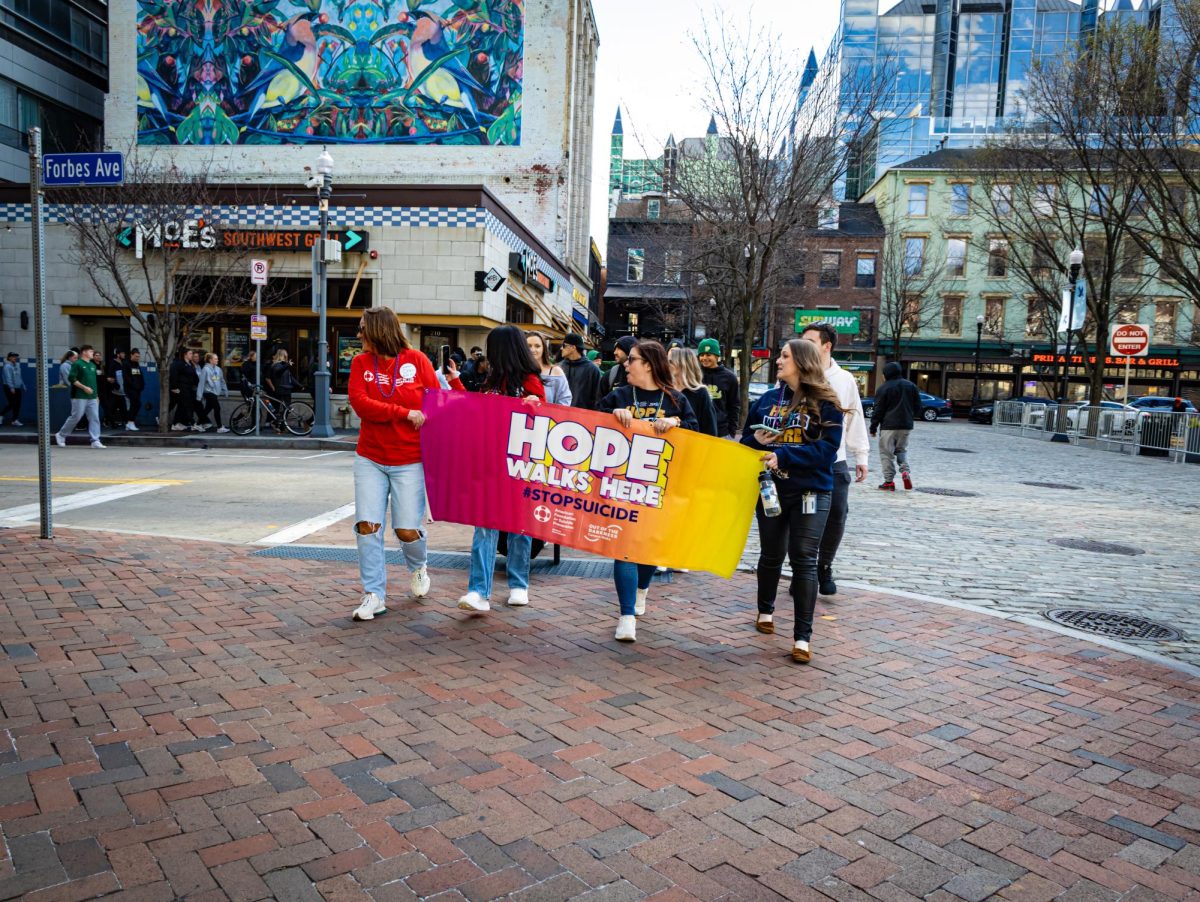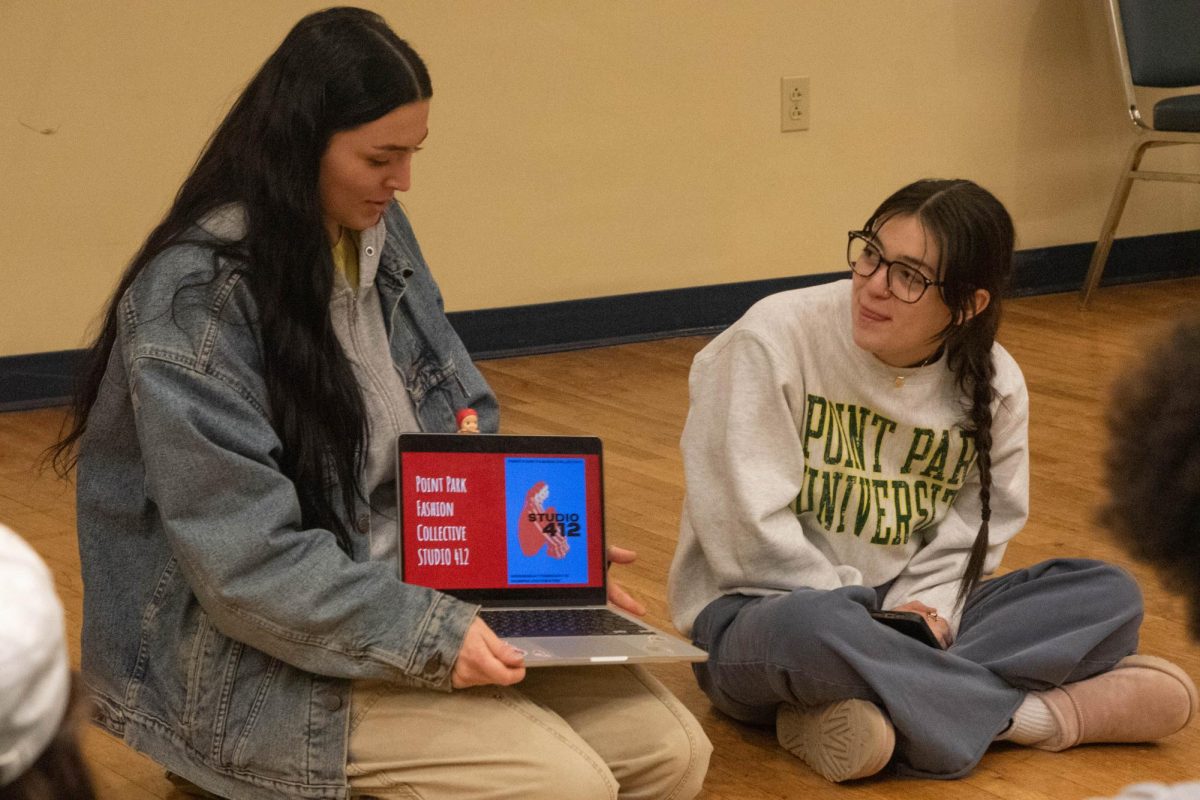
The grassroots activist organization “Fight For $15” has gained traction not just in Pittsburgh but also across the country, uniting frustrated single parents working at fast food restaurants with passionate, idealistic college students. College student activists have caught the attention of adult activists dedicated to Pittsburgh’s “Fight For $15” effort.
“I had tears in my eyes,” Mary Ann Williams said, recounting the supportive college students that participated in an April 15, 2015 protest in Pittsburgh. “I had goosebumps,” said Williams while manning the “Fight For $15” booth at the 18th Annual Summit Against Racism on Saturday.
Those college students in particular were from the University of Pittsburgh, not Point Park University.
“There were a lot more Pitt students involved then,” Point Park alum Samey Jay said.
Jay is closely involved with local activism, like the fight on behalf of Point Park’s adjunct professors.
“Fight For $15” specifically agitates for an increase in the minimum wage to $15 an hour, something that is in some cases proposed to be done over several years of increases, and in other cases. Pennsylvania’s “Fight For $15” had both a booth and a workshop at the recent Summit Against Racism.
“Why does the CEO of Chipotle need $20 million [a year] when workers are making under $15 an hour?” Carlin Christy, a “Fight For $15” activist said while speaking during the organization’s workshop.
Christy spent the bulk of her time explaining statistics about the implications of the current levels of wages in America for those making the least. She also allowed time for low-wage workers and activists associated with “Fight For $15,” most of whom were African American, to speak about their personal experiences in the workforce and the activism scene. She then led a demonstration at a local McDonald’s immediately after the workshop, inviting audience members to join.
One woman named Ashona Osbourne recounted her experience working multiple jobs at places like Wendy’s to make ends meet for her and her son, whom she raises on her own. She explained that the amount of work she found herself doing caused physical exhaustion. This inspired her to get involved as an activist in a movement much bigger than just herself and her city.
“I didn’t think we’d get this far, but we did,” Osbourne said while speaking at the workshop.
An increase in the minimum wage is now a concern discussed at the national level from politicians and mainstream pundits alike. Democratic presidential candidates Bernie Sanders and Martin O’Malley both support federal minimum wage increases to $15 an hour. Democratic front-runner Hillary Clinton supports a $12 minimum wage.
Chris Ellis, a “Fight For $15” activist at the Summit, praised Sanders, a candidate particularly popular among college students, for his support of these activists across the country. These young people surprise Ellis with their passion for this issue.
“[College students] are doing things I probably wouldn’t have done [at their age],” Ellis said.
Ellis initially expected it to be difficult for college students to get involved in the movement to raise low wages because of the expectation that a college education guarantees comfortable earnings, he explained. This didn’t pan out from his perspective, and he went on to explain the reality for many college graduates.
“You’ve got debt to pay for and rent to pay,” Ellis said. “Where do you go? Fast food.”
While he has seen Point Park students taking to the streets for wage activism, his stories about college students were mostly about Pitt students.
“There is an apathetic atmosphere at Point Park,” Jay said.
By apathy she is specifically referring to lack of energy for political activism.
“We’re all working our [expletive] off through college,” Jay said, speaking to the necessary priorities of many Point Park students.
Ren Finkel is a senior photojournalism major at Point Park, and is involved with Student Solidarity Organization, which Jay was also involved with as a student. Finkel acknowledged the lack of involvement from Point Park students. They said it most likely has much to do with the lack of a conventional campus and a majority commuter student body.
“If they’re not already on campus, it’s hard to get them interested in activism,” Finkel said.










